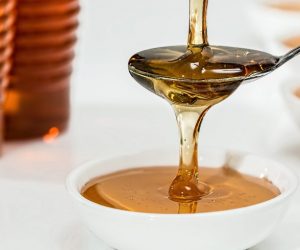
Mild COVID-19 Disease May Trigger Long-Term Immunity
Sally Robertson, B.Sc. via News-Medical Net – Researchers in the United States have conducted a study showing that individuals who have recovered from mild coronavirus disease 2019 (COVID-19) developed sustained protective immune memory against the causative agent severe acute respiratory syndrome coronavirus 2 (SARS-CoV-2).
The team’s longitudinal analysis of recovered patients who had been mildly symptomatic found that these individuals had developed multifaceted SARS-CoV-2-specific immunological memory that was maintained for the duration of the study.
As recently reported in the journal Cell, the participants developed SARS-CoV-2 specific immunoglobulin g (IgG) antibodies, neutralizing plasma, memory B cells, and memory T cells that persisted for at least three months.
The team – from the University of Washington and Benaroya Research Institute in Seattle – also found that populations of virus-specific memory T and B cells expanded and exhibited protective antiviral functions.
“Therefore, mild COVID-19 elicits memory lymphocytes that persist and display functional hallmarks of antiviral immunity,” said Marion Pepper (University of Washington School of Medicine) and colleagues.
Establishing whether mild disease can induce persistent immune memory is vital
Since the first cases of SARS-CoV-2 were identified in Wuhan, China, late last year (2019), the unprecedented spread of the COVID-19-pandemic has now led to 59.59 million cases of infection and caused more than 1.4 million deaths.
The vast majority of infected individuals experience mildly symptomatic disease and do not require hospitalization. However, whether this mild disease can induce persistent immune memory that could protect against future reinfection and therefore reduce transmission is not yet known.
“While a vaccine is needed to safely reach herd immunity against SARS-CoV-2, understanding if natural infection induces viral-specific immunological memory that could influence transmission and disease severity is critical to controlling this pandemic,” writes the team.
The role the adaptive immune system plays in immune memory
The adaptive immune system primarily mediates immunologic memory. Following viral infection, B cells and T cells bind to viral proteins, which triggers their expansion, differentiation, and secretion of effector molecules to combat the infection.
Once the virus is cleared, most of these virus-specific effector cells die, but about 10% persists as memory cells that can produce a continuous supply of effector molecules.
Strategically located dormant memory cells are also quickly reactivated in response to repeat infection and induce the same effector processes as those that occurred during the primary immune response.
Following reinfection, pathogen-specific memory B cells (MBCs) differentiate into plasmablasts that secrete protective IgG antibodies. Reactivated memory T cells also proliferate, which can help to activate MBCs. In addition, the reactivated T cells secrete cytokines such as interferon-γ (IFN-γ) to stimulate the innate immune system and deliver cytolytic molecules that destroy infected cells.
“These quantitatively and qualitatively enhanced virus-specific memory populations coordinate to quickly clear the virus, thereby preventing disease and reducing the chance of transmission,” said Pepper and colleagues. “It is therefore critical to assess the full cadre of SARS-CoV-2-specific immune memory responses to determine if mild infection induces a multilayered defense that lasts.”
What did the researchers do?
The team performed an analysis of SARS-CoV-2 specific immune responses at one month and three months following symptom onset among individuals who had recovered from mild COVID-19.
The majority of participants developed SARS-CoV-2 -specific IgG antibodies, neutralizing antibodies, and memory B and T cells that persisted for at least three months.
Three months following symptom onset, recovered individuals had formed an expanded arsenal of virus-specific memory cells that exhibited hallmarks of antiviral immunity.
This included an increased population of pathogen-specific memory B cells (MBCs) that were capable of expressing neutralizing antibodies against the virus.
“These data suggest that upon re-exposure to SARS-CoV-2, these individuals will have MBCs that can rapidly generate neutralizing SARS-CoV-2 antibody titers and help control the infection,” say the researchers.
Memory T cells also secreted cytokines and this cell population expanded upon antigen re-encounter. The number of CXCR5-expressing circulating T follicular helper cells (which can influence B cell activation) increased, as did the number of CXCR3-expressing CD4+ T memory cells and IFN-γ-producing CD8+ T cells.
What are the implications of the study?
“Together, these data demonstrate that all of the recovered individuals in our cohort formed a multifaceted defense, which suggests attenuated virus vaccines are likely to be similarly successful in eliciting a functional immune memory response,” write Pepper and colleagues.
The team says that while further studies are needed to determine how long memory to SARS-CoV-2 infection lasts, the findings suggest that mild COVID-19 induces persistent, multifaceted immune memory.
“These functional antiviral memory lymphocytes are poised for a coordinated response to SARS-CoV-2 re-exposure that could contribute to immunity and help to curtail the pandemic,” concludes the team.
- Pepper M, et al. Functional SARS-CoV-2-specific immune memory persists after mild COVID-19. Cell, 2020. doi: https://doi.org/10.1016/j.cell.2020.11.029, https://www.cell.com/cell/fulltext/S0092-8674(20)31565-8
To read the original article click here.






